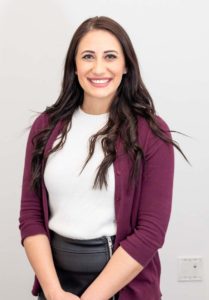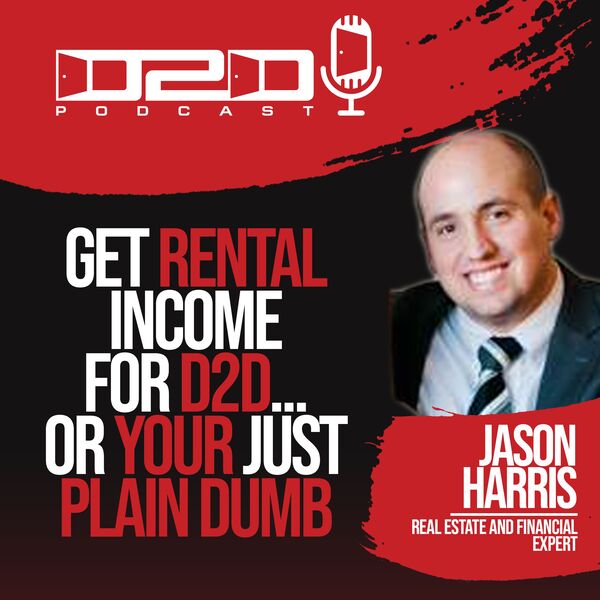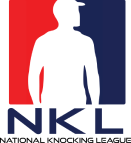Speaker 1: (00:02)
Bill, Can I help you?
Speaker2: Hey listen up, I’m bringing you the best content to ever exist in the door-to-door industry from sales leadership, recruiting, impersonal development.
Speaker 1:
Why would I need that?
Speaker 2:
Because never before have we been able to collaborate with the top experts in their industries, sharing their secrets and techniques and what makes them the best.
Speaker 1: Wait, who? Who are you?
Speaker 2:
I’m your host. Sam Taggart, creator of the DDD experts in D2dCon. Is there a place we can sit down?
Speaker 1:
We’ll come on him.
Speaker 3: Register today for D2DCon, learn from over 40 amazing speakers including the real wolf of Wall Street Jordan Belfort. Come as a team. Learn as a team. Leave as a tribe.
Speaker 2: (00:48)
Hey Everybody. This is Sam Taggart, your host with the D2D podcast, and we are here live on Facebook live and with an awesome guest today. Really interesting topic. His name is Jason Harris, and he has an extensive background in financial planning. But then he’s like, you know what, I got more passionate about real estate that he decides to say, “Hey, I’m kind of a way to do financial planning and real estate”.
And he’s like kind of conflicted of like putting my money in the market slash real estate and he decides to just put two feet in and now he owns 75 doors about to be 77. He’s 33 years old. Um, and has just become obsessed at building this portfolio. I guess what your goal.
Speaker3:
It’s been obsessed for a while, but yeah, I was going to say it like still obsessed.
Speaker2:
You’re still moving, right? Yes, absolutely.
Speaker 2: (01:43)
Just was recently hosted on Bigger Pockets. Right. So, uhW, is probably one of the most well known real estate pod. Yeah, I think it is the most well known. Yeah. Who, who runs that? Brandon Turner. David Greene. Cool. So I just listened to it yesterday. I thought it was phenomenal. Thank you. Hopefully, you know, if you want to hear another podcast, it’s really good. Go listen to how did they find it? Podcast to 88 on bigger podcast to 88. Okay. And then how do they find you if they wanted to ever get to know you? Creative gains LLC is our website creative gains, creativegainsllc@gmail.com is our email. Cool. Um, so Jason is a speaker, a door to our con, one of the vendors. Uh, and he’s helps you know our industry. You’ve helped a lot of sales guys and business entrepreneurs that make good money, put it in the right place.
Speaker 2: (02:33)
Right. Which I think is an interesting topic that I’m excited to jam on because you know, a lot of times we make good money and put it in the wrong place and you know, we look back three years ago and we go, Oh man, had I done this differently, I wouldn’t be here. You know what I mean? And I think a, if you’re listening to this, this is the podcast for you. If you are trying to figure out what do you do with your money that you made your backend, what do you do with, you know, how do you budget, how do you, how do you plan for the right financial plan short term, long term, or, I think a lot of people that just make money, they spend it and then they fast forward six years and they’re doing the same thing. Absolutely. And I’m sure you’ve seen that
Speaker 3: (03:12)
and, and sometimes it’s, it’s a good, better, best. It’s not necessarily the did something wrong. They’re just maybe a better way out there that they’re not aware of.
“Yeah. And it’s sad because it’s just a lack of education, a lack of leadership”
Speaker 2: (03:20)
Yeah. And it’s sad because it’s just a lack of education, a lack of leadership, you know? And it’s not like everybody’s parents come from millions of dollars, all of a sudden they fall into good money and it’s exciting to spend it. And sure. Yeah, of course we were all hard for him. Yeah. We’ve all been there, you know, if you drive a big truck comment Hashtag big truck. Um, anyway, so we’re going to dive into influences again, I don’t know why I keep bumping this. Okay. We’re good. So tell me a little bit about your story. Like what, what made you get into real estate in a nutshell? Like why buy real estate?
Speaker 3: (03:57)
I Read Rich Dad, poor dad, like every other teenager and okay and anyone else. But um, came up to school Byu, uh, met my wife there and her family owned a little bit in real estate and I was doing all stock investing at the time and actually making pretty good returns. But 10% on $10,000 at the end of the year, still thousand dollars and nothing real exciting. I mean that, that was great for me, but uh, had an opportunity to possibly get in on a fourplex with my inlaws and took them out to dinner, made it real formal, told them I do all the sweat equity and uh, use their money. You kind of think, well, yeah, I was going to put my money that I had, which was maybe 18 or 19,000 at the time. They were kind enough to play along. But I found out because I had a part time job and a had done pretty well in sales myself, that I was able to qualify my own with an Fha loan.
Speaker 3: (04:53)
And so once I understood that, that I had just enough to buy my own fourplex, uh, yeah, we were sold doing it ourself and yeah. You Oni. Yeah, absolutely. And so at the time, uh, and, and now I think when you put a down payment on a fourplex, the three units of Vernon come have to cover all of your mortgage. And so we went from renting to now having our rip paid for. And uh, I was already an investor trying to save as much as I could. That allowed me to save a lot more. It just snowballed from there. That’s awesome. Yeah, real exciting.
Speaker 2: (05:27)
So I want to hear one of the craziest maybe rental, I mean, we all hear rentals or headaches and you know what I mean? It’s like, God, do you really want to be a landlord? I’m sure over 75 units and years of this, Hey, do you have any crazy stories that are like, oh, there’s terrible headaches. I was going to say, I was like, I’m sure you have a manager now, but I mean, absolutely. Yeah. Any crazy ones that you’re like, oh, this is a self managed.
Speaker 3: (05:52)
Oh, you know, it’s funny, I just, I was on a trip just two weeks ago and got a phone call. This funny, I don’t know if I just share this, but yeah, we had a new tenant who moved in who she was getting home from work and someone came and dropped her skirt. And so you get weird things that have to Pinster yes. Pants to her. And she’s been afraid now. So we’ve put up lights in the parking lot. Not, not a fun story. I guess the plan. Weird, weird, random things. Yeah. Like what, what do I do as the landlord? Obviously we, we felt bad. We notified the police. Uh, we put lights up. So at nighttime, you know, there’s a little bit more light and uh, you just get weird stories. You get the terrible ones. Where tenants trash the place and you have to remodel and renovate and it’s a real costly. And
Speaker 2: (06:40)
I had one where it was like blood on the walls and like, oh wow. I was like, what do they do in here? Like animal sacrifices, like what is this? Wow. Haven’t had blood before. And it was wild. I was like, this is weird. Like how do they live like this? Anyway, I haven’t had many problems, but like that was just the weird one. That sure. Sure. And I’m sure you’ve had plenty of them. I’m like, you had a lot of people that rent. I’m sure you’re going to get the weird ones.
Speaker 3: (07:04)
Yeah, yeah. We’ve had a, we’ve had gun shots and some other weird things. Nothing that anyone got hurt. But
Speaker 2: (07:10)
That’s funny. So th th and I, and asked that question, because every, everybody’s always like, do you really want to be a landlord? And I’m like, hell yes. I do. Like I don’t necessarily want to manage it, but I want to be the guy that’s collecting the checks every month of light. So it’s kind of debunking this whole theory of like, you know, what I want to talk about is why are people scared to be the homeowners? The why. Why is it that everybody talks about real estate and as like, yeah, I want to be investor. I want to get into real estate one day, but nobody does it.

Well, you don’t know what you don’t know. Yeah. And it’s a little scary to take on when you have it done it before. I had my inlaws, uh, who had a little experience. So being 24 getting started, you know, it was a little scary because I didn’t know how to fix things and I’d recommend others to not fix things. If you’re anything like me, you’ll run to home depot five times trying to get the right part, do it incorrectly, create a bigger problem for the plumber or electrician that you, then finally I need to call, my wife won’t let me hang a picture. She was like, do you need somebody? We need to call her a guy. I’m like, Katie, I’m putting a nail in the stud. Like, he was so funny. My kids run up to me and say, Daddy, Daddy, something’s broke called Grandpa.
Speaker 3: (08:24)
Yeah, exactly. They know. Dad’s not going to fix that. Sorry. Keep going. There’s just less so. So, so what I like to tell people as a financial planner that the National Bureau of Labor Statistics shows that 38% of our income in America goes towards our primary residence. And that could mean a your mortgage, it could mean your utilities and repairs and all of that. Starting in real estate with an investment property like we did, allowed us to significantly reduce that percentage of our, that we had to put towards that category. And furthermore, why so many love real estate is because of the tax benefits that it also provides. And so once I started to learn everything that I could to duct the lawn, the lawn mower and uh, the, the plumber and electrician and everything else, um, the storage shed that I bought to put everything in, everything became a ride off my cell phone in the car and the miles that I traveled.
Speaker 3: (09:20)
Uh, but furthermore than depreciation that you can use. And that’s the one that’s the king of all tax deductions because you don’t have to spin an any of your money to actually get a benefit for it. And so between tax benefits and reducing my primary residence expenses, my disposable income became greater and greater, which allowed me to either invest in more or have a better lifestyle. I chose to sacrifice in the beginning for a better tomorrow. That was always part of my plan. And so we took a lot of those savings and bought more real estate and continued to compound from there, which is what help us to grow to such a large number at an early age. I love that. And I think Kay key point, he said people is, he chose to, hey Preston, you’re watching this, this is a good one for you. Actually asked him the question about can you be a homeowner but not a homeowner.
Speaker 3: (10:12)
So keep watching. We’ll get to that. He was the one that figured out like he’s on here. Um, anyway, so, but I, I think a lot of people get in the mindset of, oh, it’s only lasting today. Might as well spend it. Instead of like having the discipline to say, let’s save for today for a better tomorrow and now it’s kind of like if you didn’t want to work, you probably didn’t have to with the amount of equity that you have and if you needed to fire or sell a house, she’s like, great, I can pull equity nerdy or whatever. Like you were in a position where you are essentially set but it’s probably not stopping here I’m assuming, right? No. Let your assets buy your lifestyle. Yes. If you could put your money to work for you and let that money then provide you with the lifestyle you’re wanting.
Speaker 3: (10:56)
That’s just such a smarter way to go. You’ll get tax benefits for doing and we live a pretty nice lifestyle now, but it’s still a relatively small percentage of our total income because we have earned income, passive income and portfolio income due to the way that we’ve put our money to work for us. And so I actually had an example when I was at Byu going to school, I had a roommate going to buy a new car. I went with him, test, drove this Pontiac solstice and just loved it, wanted to get a sports car. I had enough to buy it and cash that ended up being my down payment for a fourplex but just a few months before almost bought that car. And I look back now and think had I made that decision to buy the car instead of keeping the money and then using it to buy a fourplex, my life right now would be a completely different dude.
Speaker 3: (11:49)
I, it’s so funny that you say that story because I had almost the exact same thing where, you know I was taught like, oh you need a nice car to recruit. And I was like, do you really need a nice to recruit? Well its status man, people want to work for those that look like they have a lot of money. And I was like, I, you know, so I was in this position where I had an extra 50 grand I wanted to put somewhere. So they’re like, you know, go get a nicer car than what you have. And I was like, I’m fine driving a Kia. Like, it’s, it’s cool, it’s got the Bluetooth light and that was I got does it gets me to a to B, like I wa I was like, can I take the 50 grand and put it somewhere else in the real estate?
“I was a financial advisor driving a 1998 Honda civic….advising these millionaires”
Speaker 3: (12:26)
And then you know that that turned into 150 grand three years, four years later. And I was like, yeah, thank you. Like that. That was probably smarter than myself. I can totally relate. I was a financial advisor driving a 1998 Honda civic that was paid off living in a residential duplex that I owned and advising these millionaires monies how to do their buddy. I knew what my personal financial statement looked like and how will it was growing but to them. But the first, yeah, the lifestyle and what it looked like I was doing was a hard sale obviously to trust me with their millions and, and it’s funny like looking in retrospect, where would you rather put your money? See what I mean? It’s kind of like perception of like, well this, I want to go with the guy that’s successful cause obviously you successful.
Speaker 3: (13:14)
But it’s like in retrospect it’s like, no, I’d rather put my money with the guy that’s driving the 90 you know what I mean? That is smart owns 75 units versus perceiving trying to buy his like status. Sure. You know what I mean? Like, and I think that happens in our industry is so often is like guys had this financial perspective versus financial reality. Sure. And I’m like, dude, what’s what, who cares? But financial realities, what really matters at the end of the day? Cause freedom, stress, free relationship problems. I mean they just, I think it will look like your health in that aspect is more critical than your perspective, perspective perception that people have had. You said that like that. And it grows from there and it gets better and better. So let’s say I’m first year up or manager, I just made an extra money. I want to get into real estate.
Speaker 3: (14:02)
How do I, how do I overcome that whole fear of like, I don’t know where to start. Like I don’t, uh, yeah, I guess it’s like, what do I do? What’s my steps? What do I really, good question. So obviously you could put your money in the stock market, you could put it in a Roth Ira, which I’d recommend over a traditional, and don’t want to go into the details of why you do that now. But, um, I would recommend if you’re renting that your first priority be own where you live instead of rent and pay the landlord and a, that doesn’t necessarily mean it has to be a multifamily unit, although that’s what I would highly recommend it kid. It can be illegal accessory apartment, single family home, or it could just be a condo town house that you rent out to your roommates if you’re, if you’re single, if you’re married, then yeah, ran out your basement or whatever.
Speaker 3: (14:51)
You can do something to derive an income from your property and let that income offset that primary residents expense that so many Americans a lot, most of their income to. Because by doing that, you give more disposable income back to you to do more things. And, uh, so I would recommend talking with a CPA and a loan officer who understands your plan of what you’re trying to do long-term because more often than not, Sam, I sit down with a sales guys that are doing really well, but because of the CPAS, aggressive tax shelter that they’re trying to implement for them, which they don’t recognize as possibly hurting them, they just want to help. They can’t qualify to buy a home or they can’t qualify to buy an investment property or sometimes even to buy a car. And so I have 200,000 or $500,000 income clients can get called.
Speaker 3: (15:45)
You can’t even buy a home or can’t even buy a car. So they’re, they’re renting for 4,000 a month and leasing out to really nice cars, but they’re never owning anything. And so they’re not getting any equity or appreciation. And that’s what’s long-term has been the biggest benefit to our wealth strategy is owning what you have. And, and uh, to be honest, once you own real estate, you can use depreciation and other better tax deductions to shelter your income. So don’t let the short term get in the way of what could be and what, what’s a lot better. Talk to someone who understands what your long-term plan is and, uh, that’ll make all the difference, I think.
Speaker 2: (16:25)
I think it’s also like having a plan. And you know, it’s so funny, like when you start making money, everyone wants a piece of that money, right? And I think it’s interesting just our conversation. So if you’re watching this and you’re a financial planner, what’s up Brian? Um, it’s, it’s hard because I, I mean, I’ve met with so many, and I’m not gonna say names, but finance companies that want to sell you a product, right? And in any, anytime you meet with a finance person, it’s like they have their agenda because they have their commissions they going to make, whether it’s they make money on a mutual fund and they make money on it, uh, what else? Uh, insurance policy or they make money on an x and even real estate people, I think it’s, I had a real estate guy. I was like, I’m going to be blunt with you.
Speaker 2: (17:09)
I’m not going to be exclusive with you right now cause I don’t trust you. Send me over a good deal and I’ll buy from you. Well, he sends me a deal every day. I was like, these aren’t good deals. Like I know how to tell you that between a good deal and a bad deals and stop sending me these bad deals. I don’t care if you sold me to send me one deal over three month period. I’d be happier with that. Then one every day that size. And so I found that everybody has an agenda because I want to make money. Right? So what I think has been so interesting about just getting to know you and your strategy and your, and your business and how you run things is it’s like being in working for one of the big financial planning companies. Well, it’s not in your best interest to tell people to get into real estate because you didn’t, you don’t make a commission on the financial planning product that you sell them. Right? Correct. So I think what’s so cool is the genuine help that you want to deliver to our audience and DDD and people that make money is, it’s like it might be the mutual fund, the Roth, the insurance, put it, but don’t forget the real estate like the the wealth that you can create year, but let’s come up with the right strategy with your accountant and with your, you know what I mean? Like you were saying is it’s like if you don’t talk to the accountant before talking to me
Speaker 3: (18:22)
Real estate, you know what I mean? You just screwed yourself because now you can’t even qualify. Like you were saying. I think a lot of sales guys don’t know that juggle and then just go to one and then they screw themselves and the other. Absolutely because they were like, oh freak. Like I didn’t realize that you need a team of advisors to understand what’s most important to you because then they can work together because what’s best for you and asset protection with your attorney isn’t what’s going to be best for your CPA when doing your taxes and isn’t what’s best for you. When you meet with your loan officer, because I started out, my attorney told me to get an individual LLC on each property I owned will after 10 or 20 elegancy annoying. I am paying over $10,000 a year just to file taxes for my k ones on my LLC.
“Before you file your taxes, send it over to your underwriter loan officer”
Speaker 3: (19:07)
I will lose more money and paying my tax guy than I will ever getting sued in the end, you know, with that type of strategy. And so I learned and realized, okay, I need to have to help them understand this is what my long-term plan is. And with that, Dan, I’ve been able to make adjustments so that my, my underwriter and loan officer can understand why my CPA does something a certain way. In fact, that’s a tip that I’d recommend to anyone before you file your taxes, send it over to your underwriter loan officer who you want to do a loan with. Make sure that your loan eligible, then sent it back to your CPA who can make those adjustments necessary before you file. That’s how I’ve been able to every year make sure that we’re, when I find a good deal or a good property, I’m going to be in a position to be able to get a yes from my loan officer.
Speaker 3: (19:53)
And you said something kind of off camera that I want to point out because, and especially right now is the time to pay attention. So if you’re watching this and you’re like real estate and you’re like next year on and buy a property, well it’s the end of the year. You’ve got to show income in 2018 so that 2019 you can buy a property. So if you’re not w doing yourself or if you’re not on an escorp and an LLC and you’re not showing wage the right wage, you know, right now is the time. You can still write a big check in December saying, I made x in December. There you go. Like, you know what I mean? So Dow is something to start to pay attention to if you’re not, but go back along what you’re saying is I think a
Speaker 2: (20:33)
And another important point, and it’s bugging me now that I can’t think of it is oh, the loan thing. Having the loan conversation, uh, prior to talking to your
Speaker 3: (20:48)
Real estate. You know what I mean? Like those two don’t talk. You’re screwed. Yeah. Yeah. You have to have everyone on the same page I think to make it work. And with what you were saying there, it’s, it’s great to get in front of your CPA right now. They’re not thinking 100% come February, March and April when they’re trying to cram in everyone’s tax returns. I would recommend planning with someone before your end where your CPAs more available and talk to them about what your goals are long term. If you’re trying to buy something next year, your CPA needs to know that because he made shoes, he or she may choose not to do something that they otherwise would have that could compromise you from being able to actually go make that goal happen. And other piece. This is, it came to me, so here’s the part where you said off camera, and I never looked at it this way.
Speaker 3: (21:38)
You said, tell me about the whole strategy of like, yeah, I’m going to pay myself a less wage to save on taxes now, but how has that, realistically not it’s, it’s saving now, but costing you so money long term and that it was interesting, your philosophy on how it’s more expensive to do that. Yeah, yeah. Let me give you my example. So my fourplex I purchased was for 434,000 back in 2010 a little bit different time, but since the last 20 years, the Utah market has averaged a 4.2% appreciation rate. On average last year it was much higher than that, but that’s been the longterm average, 4.2% on $434,000 that’s like 17 or $18,000 just in appreciation in your one, right? And then there’s principal reduction that you get off paying off your loan. Then there’s the potential cash flow that I was saving by living there.
Speaker 3: (22:31)
All of that money that I made in year one and then that’s when including prorated rants security deposits that I got at the closing table. Yeah. Depreciation extraction, return interest write off. So we’re talking about tens of thousands, 30 $40,000 just in year one that I made had I not done my planning properly the year before and shelter just a little more income to get an additional thousand dollars of tax savings, I would have lost 5,000 I would have gained $1,000 only to lose $40,000 the next year. It’s my opinion that we need to be in a position to be able to buy real estate because the real estate has so much better tax benefits then back into just shelter and other strategies that you’re using because the why, that is when you meet with an underwriter and they’re analyzing your income, they see certain deductions that you’re taking that you truly spent money on in order to get the benefit for.
Speaker 3: (23:29)
Yep. But with real estate depreciation is something you literally don’t have to spend any money to get. So depreciation you can use to shelter your income, pay less in tax, but when you get alone because you didn’t actually have to pay money to get that depreciation, they add that back to your income when qualifying you from a debt to income perspective. And so you can have a significant income and still pay a low amount in tax. But real estate is one of those best strategies in order to do so. And furthermore, Sam does, cause you got me on it and I love talking about this, but it’s, I, I, it just blew my mind. Like I’m like, oh well shoot, why wouldn’t I just take the, yeah, I’m going to pay more in taxes, but then I’m going to assume I want to get real estate can continue to get real estate.
Speaker 3: (24:13)
Like, and this happened a little bit by accident, but as we accumulated more and more properties and continue to repeat that process, we were building up more and more depreciation benefit that we could get from each property. Eventually that depreciate, excuse me, depreciation could shelter a lot of my other income sources. So it allowed me to take my cash flow for my properties or my earned income from my job either way and invest it in my Roth Iras. I still believe in diversification. I still think stocks are a great investment, but I love real estate for what it can do and I respect what stocks can do as well and I want to use the both of them together to get me into a better position long term. And so I’m able to forego the tax benefit today by doing a traditional contribution because I get my tax shelter through depreciation. And so I’m building up my Roth accounts, which by the way helps me get more real estate because the lenders want to see you have more reserves, the more properties you have financed. And so I’m building up this big reserve account tax free while also helping me get more and more real estate. It’s awesome.
Speaker 2: (25:20)
It’s the it guys having some people like this in your corner makes a difference because what I have, yes, he’s such spot on. Advice. I mean, Chandler, we speaking on real estate, he’s going to be at the, the county did pest control. He’s, I think he’s up to 40 30 doors or something like that. Pest control dude, you know, across boroughs. Yeah. Hashtag real estate baby. But um, no, but I think it’s, it’s, it’s so interesting. I had never looked at it that way, but I look at it like, I backtrack some of the benefits and the tax savings and shelters that my rentals have done for me and I’m like, oh, I didn’t do it for that. I just wanted to make 20 grand a month by the time I was 40. You know what I mean? I just wanted to have freedom amount and have true residual.
Speaker 2: (26:02)
That was mine. Absolutely. And now I look at, I’m like, Oh, was brilliant on accident. You know what I mean? Like what you said about the Roth cake guys, if you make a lot of money like Chandler or some of these guys are fry, you know, Mitch, he’s a stud. Like, I didn’t qualify to put money into a Roth. And what you told me off camera, I was like, wait, I could have put money into a Roth, my financial person. It was like, well, you make too much money to put money into a Roth, you can only put in new 401k. And I was like, and some of you guys that are listening to this, you’re like, what’s the difference? I mean this is a little high level. I’m sorry if it’s too high level, but start reading, uh, come and we maybe give you the basic next time, but tell us about how this, that’s a scam.
Speaker 3: (26:43)
I mean, you still can put money into a Roth and grow tax free, even if you make $1 million or whatever. Yeah. Probably the easiest way to, to find out is just Google backdoor, Roth IRA or door, hey, hit me up. I can’t help you. That’s what Jason’s for. But uh, yeah know, uh, once you make over a certain income level, it’s no longer deductible. And so what you can do as a nondeductible contribution to an IRA and then I think it’s form 54 oh wait, you use to convert it back to a Roth because if you don’t do that, that money stays in that IRA and gross tax deferred or you’ll pay taxes on it still. Yeah. It’s like is it better to just pay taxes on that money now instead of let it sit there and have to pay taxes on all five times the money over 30 years when you take it out or put it in the Roth and let it grow tax free forever. Exactly. I’m like, oh, that makes sense. Get you any of the damned Roth but do it through a back door. And I’m like, because I’ve been so fresh egg and like I know how many attacks out the Wazoo and I’d taken all this money, you know? Absolutely. And then you were dining about how you use the money in the Roth pre 59 and a half to go to real estate. Absolutely. Does that strategy. So yeah, I found a secret upon secrets. So if you’re watching it
Speaker 2: (27:56)
This, this is good stuff. This is the nuggets. Hold on I to reset this, don’t get into it. Pause two seconds if you’re watching, share this because this is stuff that most people don’t tell you. Why? Because they want to keep making money off you or they want to, they don’t want to somehow, I don’t know. It’s just this is the,
Speaker 3: (28:14)
They don’t tell you. So this is like real estate genius guru advice, excited for door to door con. Obviously to get deeper into this, but this is a good podcast. You’ve gone awesome. Yeah. Thank you. What was the question? How do I take my money that I’m sheltering in this Roth growing tax now reuse it for so yeah, just to clear it up when you, this isn’t normal advice by a financial advisor, right? That’s what I’m saying. He’s a freaking works for the big financial advisor groups, but it’s teaching us this stuff. That’s why I’m like, so you can access your Roth Ira, not that you want to jeopardize your, your future and your retirement, but because it’s a post tax contribution, if you’ve built up money in a Roth IRA or Roth 401k, whatever it may be, you’ve already paid taxes on that money and so it’s accessible tax free and penalty free for any purpose.
“I found a deal that was significantly under value from what I knew it was worth”
Speaker 3: (29:04)
And so my wife and I being married, we each had our own Roth Iras that we were building up. Well, we came up, found a duplex. It was a great opportunity. It was. It’s interesting when real estate, it’s an inefficient market. There’s no true value of a property with stocks. You know exactly every day how much apples shares are worth. And I can’t sell them to you for more than what it’s actually worth right now with real estate, I found a deal that was significantly under value from what I knew it was worth. And so it was worth it to me to take out my contributions to my Roth to use as a down payment for the duplex that had immediate equity in the property and immediate cash flow. Plus value add opportunity. We bought it for like two 71 put $15,000 into it and shortly after it appraise for three 45 and that was partly because we bought it well and because we made some improvements that property’s worth four 50 now and it cash flows.
Speaker 2: (30:00)
Did you guys do that? Or dollars a month. Hey guys, did you do the math? Like Ari calculate what he just said that rewind. Okay, that’s a lot of money. Shortly after. Very minimal contribution. And what type of stock would you have to be in to get that type of yeah, exactly. This is big coin in in December, yet it didn’t just like disappear. It’s the leverage component that real estate gives you that stock and you’re playing with the bank’s money and 30 year money, you’ll never see the end of 30 year to create wealth. That was just on a multiple. That stock’s Liliana do. Right? Okay. So La, I know we’re running out of time, so I’m like eating this up by the way. So I’m like, shoot, I could go on for another five hours, but I’m excited to have you a door to work on.
Speaker 2: (30:47)
You’re going to have a thank you. This will be cool. He’s got a workshop. Make sure to go to his workshop. We’re going to be talking on more fun tips on how to get into real estate investing and finance and I mean it’s something that so many of us spend so little time taking the like studying it and mastering it when it’s like, that’s like the future of our lives. I mean it’s like instead of living a w two paycheck to paycheck life, we’re in a position, those listening, hopefully you’re in a position to set ourselves up for life. Absolutely. Like very rarely do you can you have that say when you work as a nine to five customer service rep, you know what I mean? Like it’s just not, no offense to those people, but it is just like they just don’t think the way that a lot of us have the opportunity. Even think.
Speaker 3: (31:36)
Yeah. A lot of our workshops or events we do, we talk about how real estate has grown to something that we never imagined could grow to this early in our lives. But we choose to work because we want to now, not because we have to because we have enough passive income from our real estate that I could just walk away and retire and live off of it now. Now I can really truly choose to do with my time what gives me the most satisfaction
Speaker 2: (32:02)
and it’s a great place to be. Okay. So last take. This is a Jason and Sam off camera. No, just our opinion. Cause I, I, I dunno what my opinion is, but I’m curious, obviously studying, looking at markets on a consistent, and I’m sure you will look at the mls more than once a day. It’s going to say it pulled it up on my phone right now. It sounds like people like you, I’m assuming that’s pretty common. It’s like our dashboards on our sales stats. It’s like, um, take on the market. I’m curious, what’s your opinion on where you see overall real estate market in America or Utah or if future kind of your, your opinion on it? I’m curious.
Speaker 3: (32:43)
Okay. This is Jason Harris. Dr. Nolan coming from just you. Yeah. Yeah. So, uh, the Fed spade, it clearly want to raise interest rates, right? So that makes it harder to borrow a, it makes it more difficult to cash flow. We have a short supply here in Utah County and Salt Lake County, part of that’s from the o eight o nine housing market crash. And what happened there is all construction companies stopped building, yet the population of Utah continued to grow. And so we’re behind now where there’s more people than there are places to live, which is creating this great appreciation search that we’ve seen. But what happens is eventually wage growth isn’t going to keep pace with the rate of interest rate to four where people can afford the higher prices unless more people are coming to Utah who are used to a higher wage. And so it’s just my belief that tech, they, uh, when they call it silicon slopes is bringing in a lot of great tech jobs where people are making a lot of money.
Speaker 3: (33:48)

Speaker 2: (34:22)
sins, the rental market then here in Utah, because it’s going to be, it’s like, crap, I can’t go get a loan for 500,000 to get into a house I need to their farming or rent. Does that, I mean, or is that, am I done by saying, yeah,
Speaker 3: (34:35)
No, no. So an interesting survey actually came out that says more and more millennials choose to rent then choose to buy, which I think is fantastic for their landlord ride. I love it. Keep renting people. Right now I think 53% choose to rent and a 47% choose to buy and that number’s growing a further apart. And so, but it makes it easy if you want to pick up and go to Bali one day. I mean it seems like you had a good time with. That’s correct. But Really Sam, I think more and more millennials don’t want to be tied down by anything. And because they job hop and we’re looking for the best career opportunity, they often don’t want to plant their roots too soon. And so it’s been a good thing for real estate investing when you’re a landlord to own property because it’s, there’s a high demand right now. And uh, I will just add this because it’s local Qualtrics being bought out and getting 8 billion or 8.6 billion coming in to the hands of residents of Utah County. I think that type of money could have an impact. A, that’s just speculation perhaps on my part, but I absolutely think there’s some really good things happening in Utah County.
Speaker 2: (35:44)
Yeah, there’s certainly, there’s a massive growth over and vineyard in Lehigh and Saratoga and Eagle and I mean, I look at some of these developments going up. It’s kind of like they haven’t really been slowing down. It’s not like they’re, they’re pretty bullish. Oh, absolutely. Yeah. They seemed to know what they’re doing, so I’m kind of like followed up the big dudes, right?
Speaker 3: (36:02)
Yeah. Nationally, things have slowed and they’re starting to scale back some, but I think a Utah specifically is doing really well right now.
Speaker 2: (36:10)
Cool. Well, any other last minute advice for the tribe? I mean, for the, for the audience, I guess, I mean, do you have any other tips, tricks, advice before we wrap this up?
“I highly recommend people take action, learn, pick up a book, come to the seminars,”
Speaker 3: (36:21)
I have, I have sat down with a hundred of my friends over the years to recommend these same things and only two of them have ever, well, two of them, three of them may be have actually taken action and done something. I highly recommend people take action, learn, pick up a book, come to the seminars, come to, uh, any, any type of event that’s going to teach you more about it. Just get started and don’t sit on the sidelines for too long.
Speaker 2: (36:48)
That’s I said, that’s fine. Mike, we’re going to give the perfect nuggets. We just gave you a roadmap of like how amazing you can simply just get into real estate and guess what? Most of you guys are going to be like, yeah, I want to get into real estate one day and three years later I don’t want to get into real estate. One day I just go do it. Like I told him, I was like, Hey, at your booth you should have a little catalog of houses and say, we’ll get you under contract today with this one.
Speaker 2: (37:14)
I’ll have you under contract tomorrow and let’s get you started. Like, I was like, you got to give them almost like a turnkey just like here. And I was like, that’s my recommendation. And if you guys trust it and just go with it, I mean it’s like perfect. Imperfect action is better than perfect inaction. I heard that quote the other and I was like, there you go. That’s like maybe mess up. Maybe you lost it on her first. I don’t know. It’s right now in my opinion, if you know that it will at least pay off the mortgage every month or potentially cashflow. Hey, it’s an asset. You own it all. Crunch the numbers for you beforehand and make sure it’s a good deal. Yeah, love it. Well thank you so much for being on. I’m looking forward to it. Yeah, we’re excited to have you in January. And uh, if you guys got something out of this or are, you know, you felt impressed, you can contact Jason or like this, share this with some friends. Taga, tag somebody in this. It’s like talked about real estate at one point. Oh and I told Preston that answer. There’s one question, can you buy a home? Sorry, this totally just told her how to answer it. Um, can you buy a home rent like owner occupied but technically not owner occupied. So the correct a
Speaker 3: (38:23)
Dancer for that as legally, yes. You need to own or occupy it. When you sign those loan documents, you’re stating that you’re intention is to live there for a year. Okay. Um, what happens after point in your life? A job change. Uh, other things that perhaps can happen in life, they can’t obviously come back on on you on that. And so, um, your intention needs to be that you’re going to live there a year more, but if something came up that you could justify why you had to leave and you could prove that yes, it could change that rule. If something came up at job change moves you somewhere, perhaps you get married or something and you need something bigger or whatever it may be. Yes. I just know I get hit up with questions all the time and I’m like, I don’t know. I had to ask for presence. And I’m not necessarily the professional that knows that. So maybe ask your loan officer or Cook your real estate professional you choose to work with. Cool. Okay. Thank you. So thanks Sam. Yeah, appreciate it. We’ll see you guys.




























